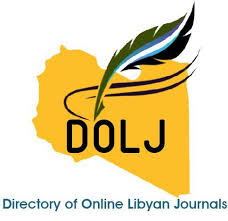Physicians involved in the misuse of antibiotics in Tripoli
DOI:
https://doi.org/10.54361/Keywords:
Antibiotics, misuse, drug resistance, physicians, LibyaAbstract
Interviews with 100 general practitioners across Tripoli city were carried out to establish if physicians are involved in misuse of antibiotics. It was evident from the findings that there are clear indications of misuse and abuse of antibiotics; this was manifested by the fact that nearly 80% of the interviewed physicians prescribe broad spectrum antibiotics for minor bacterial infections. Moreover, 68% of the interviewed physicians indicated that 50-80% of their prescriptions contain antibiotics. For selecting particular antibiotics, only 22% of the interviewed physicians rely on culture sensitivity data, 50% on symptoms and severity of the infection and 76% prescribe antibiotics before receiving culture sensitivity data. In conclusion, physicians are partially blamed for irrational (misuse and abuse) use of antibiotics in our society.
Downloads
References
Hedrick E. Antibiotics misuse; school of health related professions and school of medicine, university of Missouri-Columbia Microsoft Internet explorer. 2000, 12: 24-43.
Todar K. Bacterial resistance, department of bacteriology university of Wisconsin-Madison; Microsoft Internet explorer 1999, 11: 29-45.
Holloway K. Who contributes to misuse of Antimicrobial, In: Essential Drugs Monitor- WHO. 2000, 9: 28-29.
Davey P. Antibiotic treatment failure, the hidden cost. Beta-Watch Journal, No. 10 September 1994, Meditech Media Ltd; London, 8-9.
O'Brian TF. Antimicrobial resistance, office of communications and public liaison; national institute of allergy and infectious diseases; national institute of health; NIAID fact sheet; Microsoft Internet explorer. 2000, 12: 35-45.
WHO Consultation group. Resistance to antibiotics and other antimicrobial agents. The select committee appointed to consider science and technology; Microsoft Internet explorer 1998, 11: 53.
Sterenl B and Richard AJ. Clinical use of antimicrobials, In: Basic and clinical pharmacology, 6th ed., Katzung BG (ed), Appleton & Lang. USA. 1995, 752-768.
The parliamentary office of science & technology (POST), diseases are fighting back-the growing resistance to antibiotics, In: Beta Watch Journal. 1995, 11, Mediatech. Media. Ltd. London, P 6.
Infectious diseases, In: Oxford handbook of clinical medicine 4th ed., Hope RA, Longmore JM, McManus SK, Wood-Allum CA, Oxford university press, New York. 1998, 170-253.
Targhi MS, et al. Misuse of antibiotics in Tripoli-city: role of the pharmacists and consumers. Tripolitana Med J. 2013, 2;1: 24-27.
Downloads
Published
Issue
Section
License
Copyright (c) 2014 Mufida A. Yamane, Abdulrazag Elghelali, Abusaa M. Ali, Wejdan Y. Bzezi, Mustafa S. Targhi (Author)

This work is licensed under a Creative Commons Attribution-NonCommercial-NoDerivatives 4.0 International License.
Open Access Policy
Libyan journal of medical Research (LJMR).is an open journal, therefore there are no fees required for downloading any publication from the journal website by authors, readers, and institution.
The journal applies the license of CC BY (a Creative Commons Attribution 4.0 International license). This license allows authors to keep ownership f the copyright of their papers. But this license permits any user to download , print out, extract, reuse, archive, and distribute the article, so long as appropriate credit is given to the authors and the source of the work.
The license ensures that the article will be available as widely as possible and that the article can be included in any scientific archive.
Editorial Policy
The publication of an article in a peer reviewed journal is an essential model for Libyan journal of medical Research (LJMR). It is necessary to agree upon standards of expected ethical behavior for all parties involved in the act of publishing: the author, the journal editorial, the peer reviewer and the publisher.
Any manuscript or substantial parts of it, submitted to the journal must not be under consideration by any other journal. In general, the manuscript should not have already been published in any journal or other citable form, although it may have been deposited on a preprint server. Authors are required to ensure that no material submitted as part of a manuscript infringes existing copyrights, or the rights of a third party.
Authorship Policy
The manuscript authorship should be limited to those who have made a significant contribution and intellectual input to the research submitted to the journal, including design, performance, interpretation of the reported study, and writing the manuscript. All those who have made significant contributions should be listed as co-authors.
Others who have participated in certain substantive aspects of the manuscript but without intellectual input should only be recognized in the acknowledgements section of the manuscript. Also, one of the authors should be selected as the corresponding author to communicate with the journal and approve the final version of the manuscript for publication in the LJMR.
Peer-review Policy
- All the manuscripts submitted to LJMR will be subjected to the double-blinded peer-review process;
- The manuscript will be reviewed by two suitable experts in the respective subject area.
- Reports of all the reviewers will be considered while deciding on acceptance/revision or rejection of a manuscript.
- Editor-In-Chief will make the final decision, based on the reviewer’s comments.
- Editor-In-Chief can ask one or more advisory board members for their suggestions upon a manuscript, before making the final decision.
- Associate editor and review editors provide administrative support to maintain the integrity of the peer-review process.
- In case, authors challenge the editor’s negative decision with suitable arguments, the manuscript can be sent to one more reviewer and the final decision will be made based upon his recommendations.














